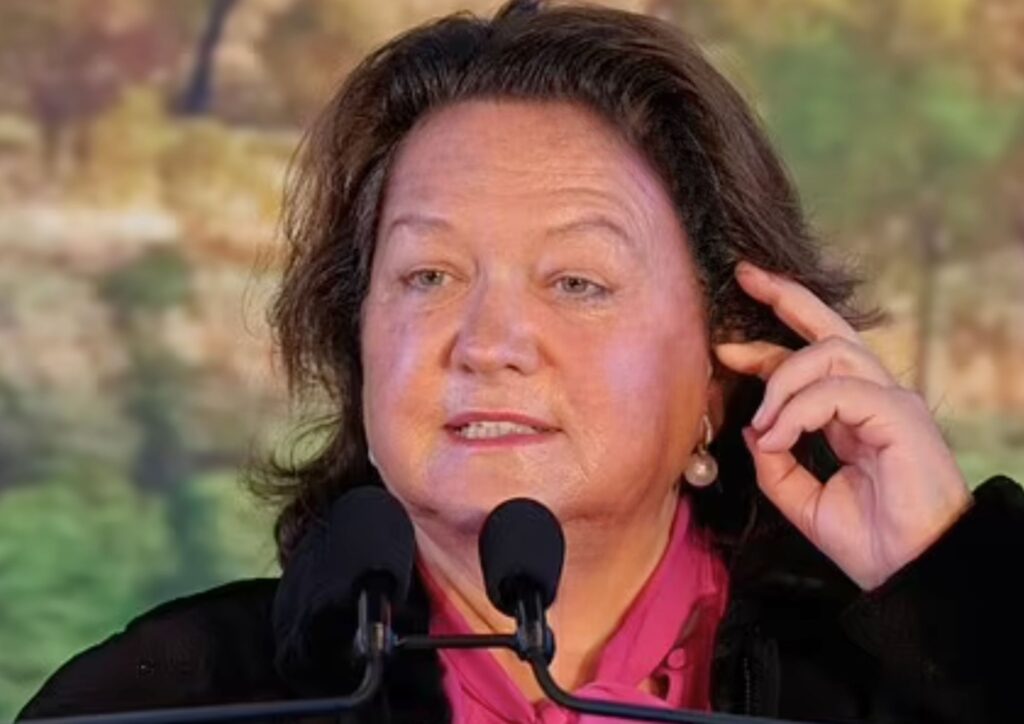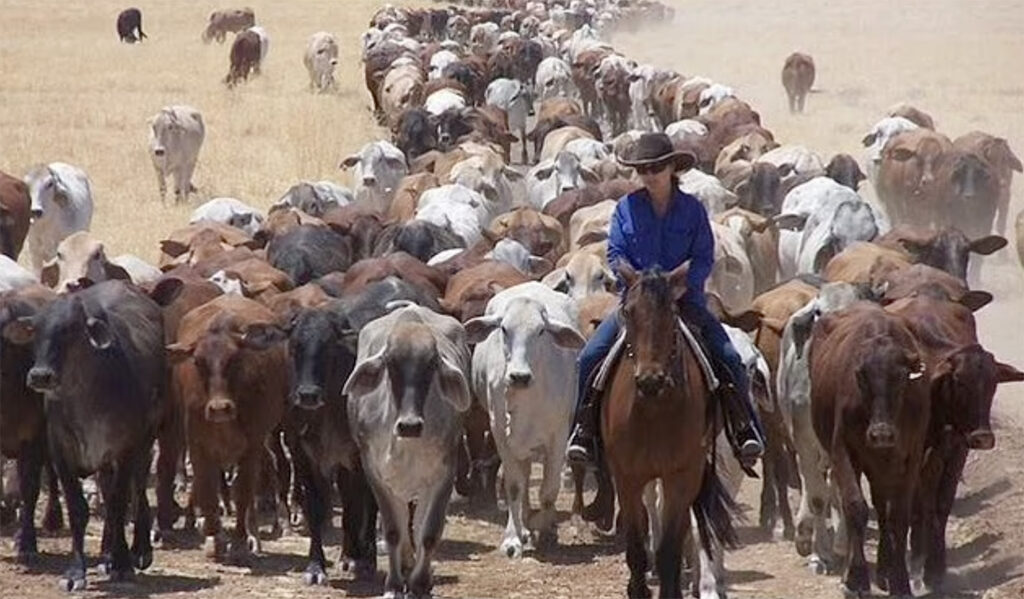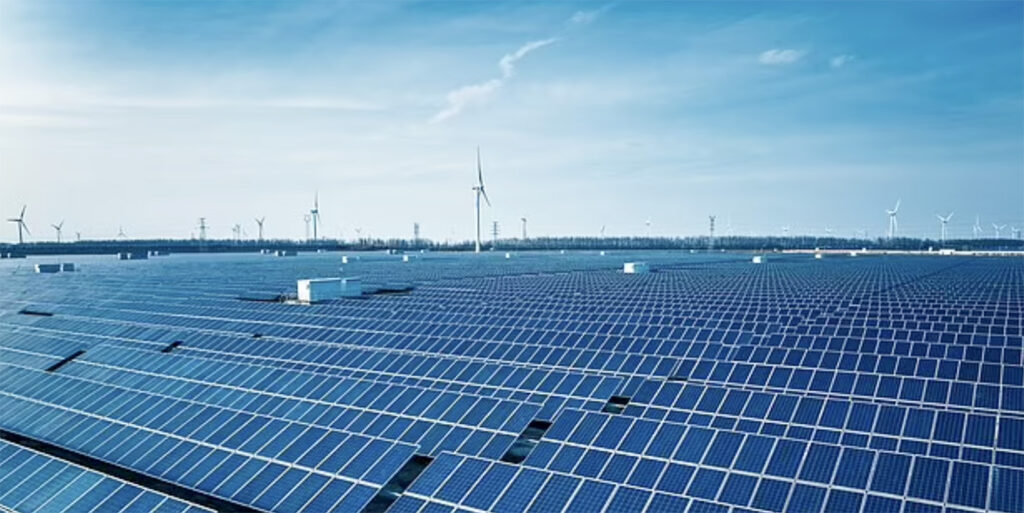
Article by Kevin Airs courtesy of the Daily Mail Australia.

- Australia’s richest woman has called for nuclear power
- She said green renewables are too expensive for farmers

Mining magnate Gina Rinehart has called for a nuclear-powered Australia to replace ‘bird-killing wind generators and massive solar panel stretches’.
The nation’s richest woman demanded the country shift towards a nuclear future when she gave a rare speech at the Australian Bush summit in Perth on Monday.
In a 12-minute blast at government policy, she demanded an end to the red tape tying up farmers and businesses in rural Australia.
But she used her closing remarks about the huge cost for farmers to commit to zero emissions to switch the focus from green renewables to adopting nuclear power.
She warned the consequences of the costly changeover could cause widespread food shortages and retail prices to surge even higher.
‘Let’s not upset many farmers with bird-killing wind-generated generators and massive solar panels stretches,’ she said.
‘Bring on clean, safe nuclear energy please, Australia.’
Gina Rinehart reveals nuclear vision for Australia’s future
Mining magnate Gina Rinehart has called for a nuclear-powered Australia to replace ‘bird-killing wind generators and massive solar panel stretches’
Mrs Rinehart laid out a list of demands to the government which she said would improve life in the Outback and ‘try to put some smiles on your faces’.
She sent her strongest message about the expensive bill farmers were facing to meet zero emission CO2 targets.
Her Hancock Agriculture business runs 14 farm properties in Western Australia with 12,000 head of Wagyu beef cattle, one of the largest herds in the country.
‘Agriculture usually doesn’t have the financial resources that the mining industry has and this is a big thing I think we are overlooking,’ she said.
‘It just doesn’t have the resources – unless of course you’ve got, a mining company in your back pocket.
‘You’ve actually got to add up the expense of these net-zero policies on farmers.
‘Just look at acquiring electric vehicles alone,’ she added.
‘Be they for lawn mowers motorbikes utes, four wheel drives, tractors, harvesters, trucks, bulldozers, graders, front end loaders…
‘It’s going to cost a fortune that farmers and pastoralists don’t have without a mining company in the back pocket. They just don’t have this money to be able to invest.’
She said the bill to switch to solar was vast for outlying estates and required huge battery back-ups for when the sun was not shining.
Mrs Rinehart said her company’s research had put the cost at around $650,000 for rural properties to be equipped with solar power and the required battery backup.
‘What they forget is that we’re not attached,’ she said. ‘We’re five hours out by road from Broome. There’s no mains just to switch on.
‘You’ve got to have massive investment in massive batteries to be able to cater for when the sun doesn’t shine. And that was forgotten about.
‘It’s just not doable.’
She called for a cap of $200,000 to be spent by farmers on the transition to zero emissions, with the government picking up the rest of the cost.
‘Most farmers and others in agriculture cannot afford Net Zero,’ she said. ‘They will have to leave agriculture.
‘With the consequence that Aussies in the towns will see huge food price increases and fresh food shortages. This is the mess that has to be gone into.’
She said her father Lang Hancock had pioneered the mining revolution in Australia which transformed life for those ‘above the 26th parallel’ in the nation’s north.
And she insisted that she had remained close to her father despite the row over his marriage to third wife Rose Porteous which split the family.
More details of the row emerged in Perth Supreme Court on Monday, just 800m away from where Mrs Rinehart was delivering her speech.
A court case over mining rights involving Mrs Rinehart and her family heard she had tried to get Ms Porteous deported during the row.
‘It’s saddening that media likes to ignore the good if you’re successful and not a socialist,’ she said.
‘Even in the last few days, ignoring the tight bond this West Australian family had for decades.
‘Such as referring to some correspondence when I was very concerned about our family company over a few years.
‘Sadly, rightly so.
‘Without adding the truth that Dad and I had again become very close pre his sad departure in 1992 and I admire his moral and courageous stand in his final weeks.’
She added: ‘My father throughout his whole life was a huge lover of the bush and our country.
‘He made himself unpopular at times, standing up for what he could see were its best interests.
‘He made a huge and exceptional contribution to our north, our state and our country.’
And she used her relationship with her father to support her call for nuclear power and tried to dispel fears about the possible risks involved.
‘Growing up on stations, the family unit is close and trusting, as ours certainly was which used to be well known in Western Australia,’ she said.
‘We drove for a long time together in up north looking at the cattle looking at the windmills. I was there to open the gates.’
She quoted a story about American physicist Edward Teller that her father told her on one of those trips.
She said he found the radiation from standing next to a nuclear power plant for a year was only a little more than what a man would get from sleeping with his wife.
But if he slept with two wives, he’d actually get more radiation from them than the nuclear power plant.
‘Please remember Dr Teller had scientifically fact checked this,’ she added with a grin.
Mrs Rinehart had earlier called for the elderly and students to be allowed to work more hours without losing pension or welfare benefits and reducing paperwork and legal restrictions.
‘Just imagine the smiles when we can finally fill those jobs in the bush and see hospitals and health centres hours and effectiveness improved,’ she said.
She also wanted more money spent on services in mining areas which generated high income.
‘Frankly, we should have the best equipped and most luxurious hospitals in Newman, Dampier, Port Hedland and other mining towns thanks to the revenue we create in the Pilbara and similarly in other mining areas,’ she said.
‘And ditto, 24 hour 365 days a year airstrips so the better equipped and fastest Royal Flying Doctor planes can always arrive.
‘Us and our people in the outback would then be more safe.’
















